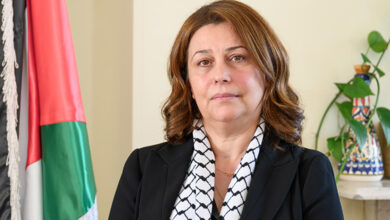Integrating new teachers
eolas summarises ESRI’s review of the Droichead Teacher Induction Pilot Programme and the changes that will be made to the system before its national rollout in September 2017.
 Droichead is the enhanced model of induction for newly qualified teachers (NQT). At present 330 schools are registered for Droichead and in the 2015-16 school year, 400 newly qualified teachers participated in the process. The programme, which began in 2013, is designed to provide whole-school support for teacher induction in both primary and post-primary schools.
Droichead is the enhanced model of induction for newly qualified teachers (NQT). At present 330 schools are registered for Droichead and in the 2015-16 school year, 400 newly qualified teachers participated in the process. The programme, which began in 2013, is designed to provide whole-school support for teacher induction in both primary and post-primary schools.
It is led by a Professional Support Team (PST) consisting of the school’s Principal, a mentor and other members. NQTs are provided with support from their mentor and other members of the PST in identification of their professional learning needs and in planning opportunities to address these needs. In the process, emphasis is placed on the progress made by the teacher in terms of their professional learning and practice.
The ESRI’s research sought to assess the effectiveness of this programme by asking the following five questions:
• how effectively are the teachers who participate in Droichead supported and is the process adequately resourced?
• how useful and appropriate are the criteria and indicators of good practice developed through Droichead?
• how effective, appropriate and fair are the procedures and protocols employed by members of the PST in making a recommendation to the Teaching Council in relation to the practice of a newly qualified teacher?
• how effective is the Droichead experience as an induction into the teaching profession?
• what can be learned from the research findings on Droichead to facilitate the mainstreaming of an effective induction and probation process for all teachers?
Induction
With an increased focused on teacher quality, induction is now regarded as a vital stage of becoming a teacher. It is seen by many as a distinct phase in learning to teach, as a socialisation process and as a deliberate programme for sustained and systematic support and assistance for newly qualified teachers.
Principals believe that initial teacher education prepares NQTs in curriculum context, planning lessons and use of appropriate methods, however they were less positive about NQT’s experience of dealing with a diverse range of pupils and working with parents. NQTs also expressed similar concerns about their prior education.
The report notes that the NQT’s main point of support throughout the programme is their mentor who in all participating schools met frequently with the new teacher. However the role of the Principal and the other PST members varied. Principals varied in whether they assumed an ‘overseer’ role that wasn’t deeply embedded in the development of the new faculty members or took an active role in the NQT’s sign-off. Case study visits showed that in a number of cases, other members of the PST had some ambiguity about their role.
The report also notes some discontent over the length of time required to complete the Droichead process with over half of primary school Principals stating it is too short. There is praise for the recommendation process itself and the mentor typically takes an active role in supporting the NQT while the Principal and other PST members are more involved in making recommendations to the Teaching Council. Overall satisfaction with the programme was high among Principals, mentors and PST members, though there was less satisfaction expressed in relation to resources as well as the timing and location of meetings.
The report states that the main benefit of the programme is the structured support it provides NQTs. Some Principals noted how the programme encouraged a more collaborative culture with greater openness within their school as a whole. Principals in participating schools reported greater levels of improvement among their NQTs than those in a matched sample of non-Droichead schools. Similarly, NQTs in Droichead schools reported lower levels of stress than those in non-participating schools.
However, there is criticism of the programmes inflexibility and the most commonly reported challenges with the delivery of programme centre on the issue of time, mainly for meetings and observations. Only half of Principals drew down the full allocation of release time available under the programme and this is a reflection of their perception of the inflexibility of the method for allocating release time and a reluctance among teachers to miss important teaching time. Another commonly noted complaint was the additional workload that the programme placed on the mentors without any reward.
Changes
Following the report’s publication, the Teaching Council announced a number of significant changes to Droichead. The Council has decided that Droichead will be the recognised route to induction for new teachers in large schools from September 2017 and new teachers from all schools from September 2018.
The changes to the induction scheme include:
• the integration of the Droichead process and the induction workshop programme: from September 2016, all new teachers in Droichead will attend one cluster meeting per term and one additional professional learning activity. These cluster meetings will replace the current requirement to attend 10 workshops;
• an increase to the range of settings in which the Droichead process can be used: while the majority of NQTs will complete Droichead in a mainstream setting, when the NQT is the most appropriate teacher to support the needs of pupils, they can engage in the Droichead process in special schools, learning support and resource settings;
• recognition for the new programmes of initial teacher education: the extended school placement in the latter half of the initial teacher education programme will now be recognised towards the professional practice requirements of Droichead. In addition, newly qualified Primary teachers undergoing Droichead will now complete a single block of 60 days, and Post-Primary teachers will complete a single block of 200 hours.
Speaking following the announcement of these changes, Teaching Council Director, Tomás Ó Ruairc explained that teachers who have participated in the pilot scheme have shown that staff in schools can be trusted to enhance the quality of learning for both students and teachers.
“Droichead reflects the growing importance of induction for new teachers over the past 14 years,” said Ó Ruairc. “It is grounded in the belief that the quality of new teachers’ learning is enhanced when they have space and time to engage with more experienced colleagues. In this way, the quality of students’ learning stands to benefit.”





